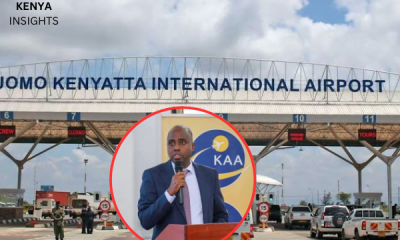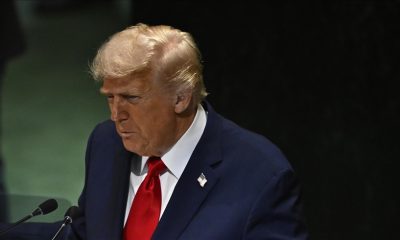Americas
Trump’s Sh52 Billion Qatar Jet Gift Sparks Constitutional Firestorm
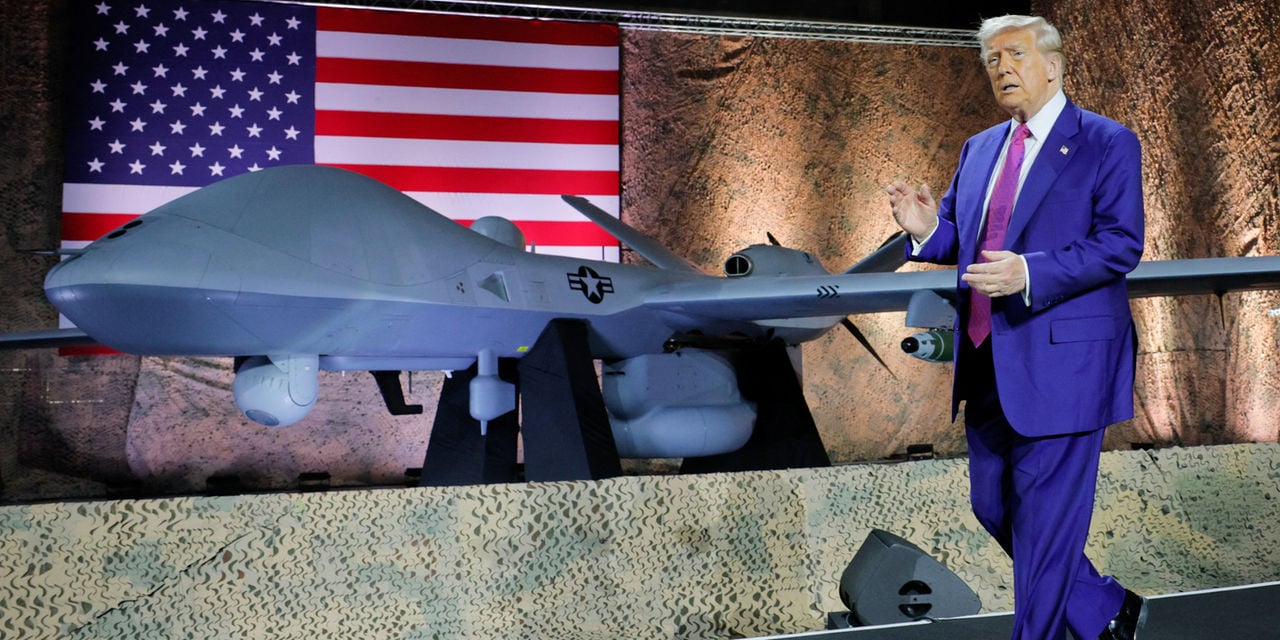
US President Donald Trump’s plan to accept a $400 million (Sh51.7 billion) airplane from Qatar raises a raft of questions about the scope of laws that relate to gifts from foreign governments and are intended to thwart corruption and improper influence, legal experts said.
Below is a look at some of the laws and legal precedents:
What does the US Constitution say?
There are two provisions in the US Constitution that place restrictions on the president receiving an emolument, or gift, from foreign governments or from federal or state governments.
One provision states that the US Congress must approve any gift from a “King, Prince, or foreign State” to an elected official in the United States. The other, referred to as the “domestic” emoluments clause, prohibits the president from receiving a gift beyond salary for the job.
Congress has expressly approved gifts from foreign governments in the past. In 1877, Congress accepted the Statue of Liberty as a gift from France.
The foreign emoluments clause did not bar President Barack Obama in 2009 from receiving the Nobel Peace Prize, which included $1.4 million (Sh181 million) in cash, without congressional consent.
A memo from the Department of Justice’s Office of Legal Counsel determined the prize did not violate the Constitution because the Norwegian Nobel Committee is not a “King, Prince, or foreign State.” Obama donated the money to charity.
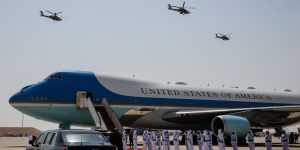
Qatari military aircraft perform a flyover before U.S. President Donald Trump departs on Air Force One from Al Udeid Air Base, en-route to Abu Dhabi, United Arab Emirates, in Doha, Qatar, May 15, 2025.
Photo credit: Reuters
Who can enforce the provisions?
That’s unclear, and the Supreme Court has not addressed the question, according to a report by the Congressional Research Service.
Legal experts said members of Congress, US states and even potentially some private businesses could try to sue the president if they believe a gift violates the foreign Emoluments Clause, but they face challenges.
US courts require plaintiffs to have legal “standing” to bring claims, meaning they must be the proper party to bring the case, which is a threshold issue for any litigation to advance.
What have US courts said about emoluments?
Until Trump’s first term, there had not been substantial litigation over the clauses, and even the meaning of the term “emolument” is a matter of legal dispute.
Democratic members of Congress sued Trump in 2017 after his global businesses allegedly received payments from foreign governments, including when Kuwait hosted an event at the Trump International Hotel in Washington.
That case was dismissed by the US Court of Appeals for the District of Columbia, which said the 215 members of Congress lacked standing to sue as an institution because they did not comprise a majority. Republicans controlled both houses of Congress at the time, as they do now.
The US Supreme Court declined in October 2020 to review that ruling.
Attorneys general for Maryland and the District of Columbia also jointly brought an emoluments cases related to Trump’s businesses during his first term. Their case was dismissed by a panel of three judges, appointed by Republican presidents, of the US Court of Appeals for the 4th Circuit, also for a lack of standing.
The US Court of Appeals for the Second Circuit determined in 2019 that restaurants and hotels in New York and Washington had standing to bring an emoluments lawsuit claiming they were harmed by Trump’s competing businesses. The case was dismissed without addressing the merits when Trump left office after losing the 2020 election.
Do other US laws govern foreign gifts?
The Foreign Gifts and Decorations Act sets requirements for gifts and allows the president to keep any that are worth less than $480 (Sh62079).
Gifts worth more than $480 (Sh62079) may be accepted on behalf of the United States, which retains ownership. Presidents are allowed to keep gifts above the threshold level if they reimburse the government for the fair market cost.
Are there possible exceptions?
It might be possible for the plane to be accepted by the Department of Defence under a statute that was enacted in 1990 to govern contributions to defence programs.
The law allows the Secretary of Defence to accept from individuals, foreign governments and international organisations contributions of money or property and could be put to use by the Air Force, which operates the president’s plane.
Trump has said the plane would eventually be donated to his presidential library, a repository housing research materials from his administration.
He said he has no plans to keep it for personal use after leaving office. It is unclear if such a donation would run afoul of the domestic emoluments clause, which prevents a president from accepting gifts beyond the salary for the job.
(Reuters)
Kenya Insights allows guest blogging, if you want to be published on Kenya’s most authoritative and accurate blog, have an expose, news TIPS, story angles, human interest stories, drop us an email on [email protected] or via Telegram
-

 Investigations1 week ago
Investigations1 week agoBillions Stolen, Millions Laundered: How Minnesota’s COVID Fraud Exposed Cracks in Somali Remittance Networks
-

 News1 week ago
News1 week agoUS Moves to Seize Luxury Kenya Properties in Sh39 Billion Covid Fraud Scandal
-

 Investigations1 week ago
Investigations1 week agoJulius Mwale Throws Contractor Under the Bus in Court Amid Mounting Pressure From Indebted Partners
-

 News1 week ago
News1 week agoMAINGA CLINGS TO POWER: Kenya Railways Boss Defies Tenure Expiry Amid Corruption Storm and Court Battles
-
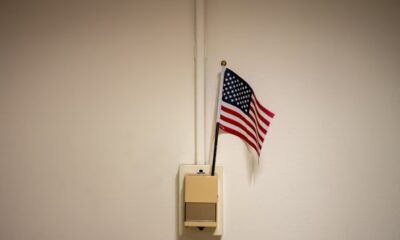
 Americas1 week ago
Americas1 week agoUS Govt Audits Cases Of Somali US Citizens For Potential Denaturalization
-

 Americas3 days ago
Americas3 days agoTrump Says US Needs Greenland For Its National Security
-

 Sports2 days ago
Sports2 days agoThe Easy Way to MSport Ghana: From Login to Your First Bet
-
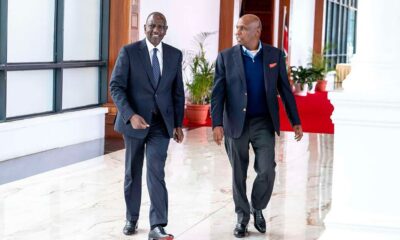
 Politics13 hours ago
Politics13 hours agoHow Ruto-Moi Deal Died After Temporary State House Ceasefire



